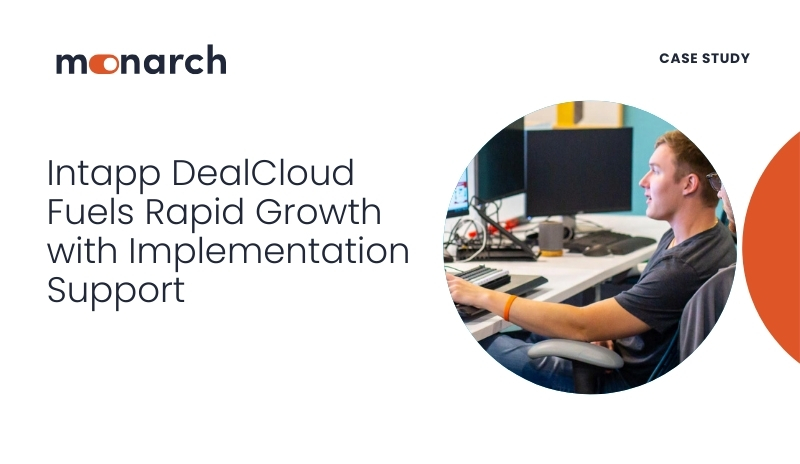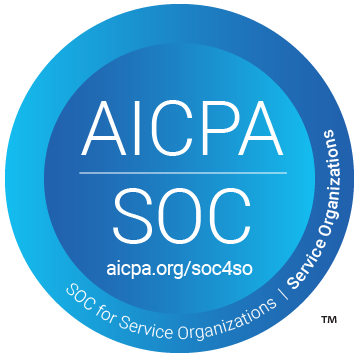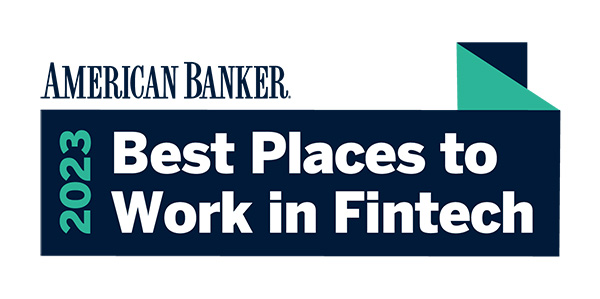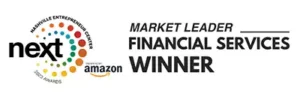Imagine this scenario: Your SaaS company is riding a wave of success, with new customers eagerly signing up for your product. This rapid growth is exciting, but there’s a catch— your sales are outpacing the capacity for new client onboarding. This situation, while positive, poses significant challenges. Timely customer onboarding is crucial, as delays jeopardize important client relationships and postpone revenue recognition.
DealCloud, a CRM platform for capital management firms, faced precisely this dilemma. The company was grappling with growing pains, struggling to meet surging customer demand. Their team was stretched thin, working excessive hours, and they found it challenging to scale their workforce efficiently.
In this article, we draw on our extensive experience to unpack the top five challenges SaaS companies face in scaling SaaS implementations. We’ve assisted in thousands of implementations, including DealCloud, and we’re here to share practical solutions that can transform these common challenges into opportunities for growth and efficiency.
Challenge #1: Recruiting and Hiring the Right Talent
One of the most significant hurdles in scaling SaaS implementation is recruiting and hiring the right talent equipped with a particular combination of skills. The ideal implementation candidate demonstrates a “triple threat” of competencies: robust project management skills, exceptional client-facing abilities, and strong technical acumen.
Software developers are typically not the ideal fit for implementation roles. While developers are adept at creating software, SaaS implementation demands a different skill set. Developers often thrive in building from scratch and working with code, but implementation experts shine in configuring and customizing existing software to suit specific client needs.
Solutions
To address these challenges, consider implementing strategies for targeted recruitment. Look beyond the conventional pools of talent and tap into networks where multi-skilled professionals might be found. Utilizing specialized job platforms, industry networking events, and referrals can be effective.
As you’re assessing candidates, look for people who are self-motivated, self-managed, and curious. They should demonstrate the ability to manage multiple projects, stay organized, and efficiently move projects along a timeline. They also need to be skilled at managing customer relationships, sensing needs, and encouraging progress when things need to get done.
By focusing on targeted recruitment and utilizing role-specific assessments, you can ensure that you are bringing in the talent you need to effectively scale the implementation and onboarding of your product.
Challenge #2: Effective Staff Onboarding and Training
Adequate yet efficient onboarding and training are essential for scaling a SaaS implementation team. The challenge lies in striking a balance between speed and breadth. Quick training ensures that new hires can contribute to projects without delay, a crucial factor in fast-paced environments. However, if this training is not comprehensive enough, it can lead to gaps in knowledge and skills, ultimately impacting the quality of implementation and customer experience.
The risks associated with inadequate training are significant. Insufficiently trained staff can lead to errors in implementation, inefficient use of resources, and potential project delays. These issues not only affect the immediate project outcomes, but they can also tarnish a company’s reputation and client relationships in the long term. Internally, it can lead to increased stress and burnout among team members who may feel ill-equipped to handle the demands of their roles.
Solutions
To overcome these challenges, implementing a “Learn-Do-Teach” methodology in training programs can be highly effective. This approach is structured in three phases:
- Learn: Initially, new team members undergo a learning phase where they are introduced to the necessary tools, processes, and best practices. This stage often includes a mix of formal training sessions, self-study materials, and hands-on practice with guidance from experienced colleagues.
- Do: Following the learning phase, team members demonstrate their knowledge in a controlled environment. This allows them to apply what they’ve learned in real-world scenarios, bridging the gap between theory and practice. Support and feedback from mentors or supervisors during this phase are crucial for reinforcing learning.
- Teach: In the final phase, new team members demonstrate their mastery by working on entry-level client accounts. This allows them to begin building on their own real-life experiences while receiving feedback from clients and mentors.
Challenge #3: Ensuring Readiness for Scaling
Scaling your SaaS business can be a tricky thing to pinpoint. If you scale too early, you risk overwhelming your team and not being able to provide a quality product and experience to your customers. On the other hand, scaling too late can result in missed opportunities and an inability to capitalize on market demand.
Solutions
Here are a few things to consider as you assess your company’s readiness for scaling:
- Stability of the Current Implementation Process: The existing process should be stable, reliable, and well-documented. This foundation ensures that scaling does not disrupt existing operations.
- Resource Constraints: Assess whether there are sufficient resources, both human and technological, to support an expanded operation.
- Market Demand: Evaluate the market demand to ensure that there is a genuine need for scaling.
- Financial Health: Review the company’s financial stability to ensure it can support the expenses associated with scaling.
Challenge #4: Managing the Pace of Scaling
Once you have a standardized implementation process and you’ve determined you’re ready to scale, it can be tempting to try to do too much too soon. Gradual scaling is often the key to managing growth and resource management effectively.
Solutions
To manage the pace of scaling, it’s important to focus on gradual strategies that allow for sustainable growth:
- Incremental Growth: Expand the team and resources in small, manageable increments, allowing for adjustments as the business evolves.
- Continuous Monitoring: Regularly assess the impact of scaling on various aspects of the business, including employee workload, customer retention, and the quality of implementation.
- Flexibility: Be prepared to adjust the scaling strategy in response to feedback and changing market conditions.
Challenge #5: Securing End-Customer-Buy-In and Adoption
In order for SaaS companies to effectively scale the implementation and onboarding of their products, comprehensive buy-in from the end-customer team is imperative. Without the support and commitment from the customer, the implementation process can be slow and challenging. Additionally, customers may not fully utilize the platform, potentially leading to dissatisfaction, underuse, and ultimately, customer churn.
The complexity of this challenge lies in the diverse nature of end-customer teams. These teams often consist of a variety of stakeholders with different needs, expectations, and levels of technological proficiency. Aligning these varied interests and ensuring everyone is on board with the new system can be a daunting task.
Solutions
To navigate this challenge, it’s crucial to implement effective communication and engagement strategies. Key approaches include:
- Stakeholder Analysis: Identify and understand the needs, concerns, and influence of different stakeholders within the customer’s organization.
- Tailored Communication: Develop communication plans that address the specific concerns and interests of each stakeholder group. This could include personalized demos, targeted training sessions, and regular check-ins to address any questions or concerns.
- Customization of the Implementation Process: Adapt the implementation process to meet the unique needs of each customer. This might involve customizing the user interface, providing specific functionality that addresses a unique business process, or integrating with existing systems the customer is using.
Is Your Implementation Team Facing These Common Hurdles to Business Growth and Success?
Is your SaaS company struggling to scale implementation and onboarding for your customers? Don’t let these common hurdles hold your business back from reaching its full potential. Addressing these common challenges head-on, from recruiting the right talent to securing end-customer buy-in, is essential for ensuring efficient operations, achieving higher customer success, and fueling rapid growth.
Monarch Can Help
Monarch is an expert partner for SaaS companies facing the key challenge of scaling implementations. With a refined approach that emphasizes consistency and efficiency, Monarch offers services tailored to the unique needs of each partner:
- Streamlined Recruitment and Training Process: Monarch has perfected a recruitment and training system that ensures instant scalability for your implementation team without the headaches of allowable headcount, training, or turnover.
- Adaptive Team Scaling: Monarch’s expertise lies in understanding and adapting to partner workflows, allowing for a flexible and tailored approach to scaling teams, particularly for companies that have a well-documented implementation process and are experiencing rapid sales growth.
- White Labeling Capability: Monarch can seamlessly integrate with your team, offering white-labeled services to streamline communications with end customers, thus maintaining a cohesive brand experience.
- Efficient Onboarding: The maturity of the implementation process informs the speed of onboarding, typically ranging from two to four weeks. This quick integration is pivotal in maintaining momentum in rapidly growing environments.
- Customized Engagement Structure: Monarch functions as an outsourced team, simplifying engagements by directly interfacing with the SaaS platform, thereby eliminating the need for additional agreements between the platform’s customers and Monarch.
Download Our DealCloud Case Study: Get behind-the-scenes insights on how Monarch helped power DealCloud’s rapid growth with our flexible and scalable platform expertise.







